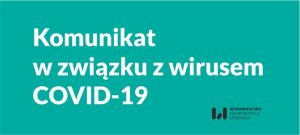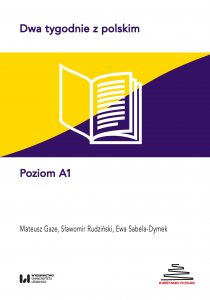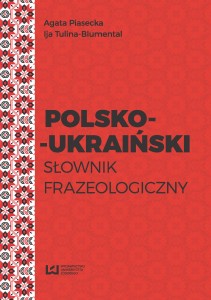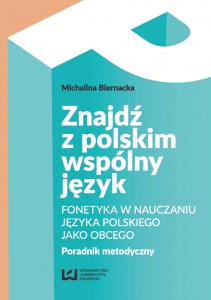Qualitative Sociology Review | Vol. 18 No. 1 🇬🇧
Opublikowano: 25 marca 2022
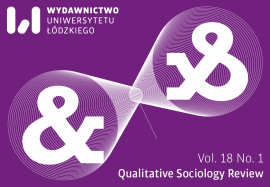
Qualitative Sociology Review jest anglojęzycznym kwartalnikiem Wydawnictwa Uniwersytetu Łódzkiego, który podobnie jak “Przegląd Socjologii Jakościowej” podejmuje refleksję nad jakościową i interpretatywną drogą uprawiania socjologii. Redakcja dąży do współpracy, integracji i rozwoju środowiska naukowego, a swoją inicjatywę podejmuje w imię wartości takich jak: indywidualność, równość, tolerancja, społeczność, nauka, ludzkość.
Nowy numer zawiera sześć artykułów naukowych podejmujących problematykę zmian w relacjach społecznych, wśród nich: doświadczenia metodologiczne etnografii kolaboracyjnej, uhonorowanie “głosu” w badaniu rozwoju tożsamości ucznia w narracji, wyzwania rzeczywistości pandemicznej w zmarginalizowanej przedsiębiorczości, praktyki dyscyplinarne wobec dzieci i ich związek z prawami dziecka w Zimbabwe.
Szczegółowy spis treści wraz z anglojęzycznymi abstraktami znajduje się poniżej. Zapraszamy do lektury!
Aurora Álvarez Veinguer, Rocío García Soto, Antonia Olmos Alcaraz
In this article, we will analyze how we built the research process of a collaborative ethnography with the Stop Evictions Granada 15M Movement (SEG15M). We will begin with a brief contextualization of the housing issues in Spain and the SEG15M movement to explain why we started the co-research experience with the movement. Next, we will clarify the composition, function, and main purposes of the ‘debate groups’ in our research, as well as their particular differences and dynamics concerning other qualitative techniques. Finally, we will focus on two main aspects, participation and communication, which emerged within the debates and later materialized into a transmedia project and the development of a radio soap opera. The latter is a product, and a process, of collaborative work that bridges communication and participation at the intra- and inter-group levels. It is a fictional story that emerges from the common lived experiences of the groups.
Deborah Lees, André Van Zyl
Multiple, interrelated narrative methods were employed in a doctoral study purposed to investigate the student identity development of seven first-year participants. This approach provided them with multiple opportunities to convey their unique first-year experiences and revealed rich understandings of how they constructed their identities at a private higher education provider in Johannesburg, South Africa. The purpose of this article is to demonstrate that fostering the trust of participants ensured the formation of rich biographical narrative portraits through multiple narrative-type collection methods and forms of analyses, resulting in rich tapestries of personal experience, which were constitutive of their identity formation. Each participant’s narratives revealed their particularities, complexities, and unique experiences of their first year. Although each participant experienced their first year of study very differently, this article weaves in the first-year experiences of one person into its fabric. The narrations of Kondwani (pseudonym), a Zambian student, are used to illustrate how her voice emerged and was held in a trustful research relationship. Her case is representative of all the participants in that it is an exemplar to illustrate the richness of the individual narratives gleaned from carefully chosen methods and forms of analysis that were employed in the study.
Vocational Teacher Educators’ Role Identity: A Case Study in Malta
Alison Said
This paper gains a deeper understanding of the professional role identities of vocational teacher educators (VTEs) when compared with mainstream teacher educators (MTEs) in Malta. It is framed using identity theory from the structural symbolic interactionism perspective (Burke and Stets 2009). Data were collected through semi-structured interviews, adopting thematic analysis. Findings show that VTEs and MTEs underpin their teaching differently, influenced by the perceptions they have about their professional role identities. There is no “one size fits all” solution for each country, yet this study contributes to a field with a limited research base and offers new insights to identity theory.
Markus Tümpel, Pia Cardone
Micro-enterprises and self-employed individuals have been hit particularly hard by the economic effects of the COVID-19 pandemic, but few studies have tackled the issue. This paper is based on four in-depth case studies of self-employed people from different sectors who have been greatly affected by measures taken to control the pandemic. By capturing shifts in the perception of institutional and economic pressures, as well as precarity after the outbreak of COVID-19, we gained profound insight into crisis management among entrepreneurs working in niche or marginalized fields of business. We found parallels in their biographies and attitudes, but their perceptions of the COVID-19 pandemic differ. We observed paradoxes and hybrid logic, as well as different ways of coping with the crisis. Having a “plan B” helped in some cases, while all of them benefitted from the solidarity of networks and communities.
Stressors and Coping Mechanisms among Extended-Stay Motel Residents in Central Florida
Stephanie Gonzalez Guittar
Not having a permanent home means living in a constant state of stress. Though much has been written about homelessness and its stressors, very little research has focused on the experiences of those living in liminal housing, such as extended-stay motels. As affordable housing units dwindle in the US, more individuals and families with children have moved into extended-stay motels. In this study, I explore stressors that low-income families living in extended-stay motels experience, as well as their coping mechanisms. Through semi-structured interviews with 18 families with children living in extended-stay motels in the Central Florida region, consistent financial and emotional stressors were identified among all families. Additionally, gender and the community feel of a motel impacts the magnitude of the stress, as well as the ability to cope. Findings from this study suggest that, although families in motels experience constant environmental stressors, community building among precariously housed families may create an informal safety net for the families and thus, alleviate the financial and emotional crisis.
Child Disciplinary Practices versus Child Rights in Zimbabwe: Viewed through Social Work Lenses
Tapiwa Simango, Itai Mafa
Although parents are a vital cog in instilling and maintaining child discipline, very little information exists about the methods they employ. Using a qualitative approach, this paper explored the methods used by parents in Zimbabwe—an African context—to discipline children, elucidating their implications on children’s rights. The findings show that parents in Zimbabwe use both violent and non-violent disciplinary methods such as verbal reprimand, beating, and spanking, which, at times, violates children’s rights in the process. The use of non-violent means has also depicted a violation of children’s rights through deprivation of food, denial of playtime and shelter. Evident from the findings was, again, the existence of multiple-layered contestations on child discipline within the socio-cultural discourse—the most popularized being the debate on corporal punishment versus child rights violations. Through social work lenses, the paper provides a basis to dispel an anachronistic thought, which rationalizes the instrumentalization of punishment to achieve child discipline, underscoring the need for child rights-oriented discipline.
Komentarze
Ten post dostępny jest także w języku: angielski


